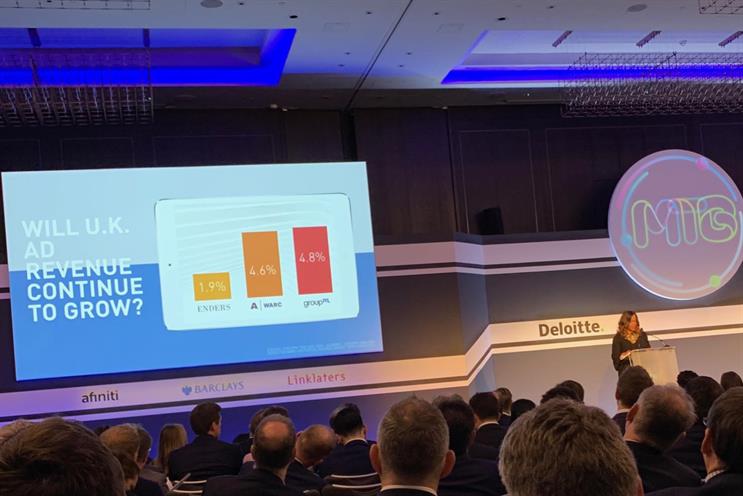
Karen Blackett has admitted Brexit uncertainty is "impacting" the UK ad market but she warned advertisers that cutting spend risked hurting their own profits.
"The economy is becoming paralysed in the face of Brexit," Blackett, WPP's UK country manager, told the Deloitte/Enders Analysis conference.
"Cautious behaviour is impacting marketing budgets. It’s becoming increasingly clear that companies looking to find contingency funds for a no-deal Brexit are taking some of that money from marketing budgets."
She admitted that forecasts made before the start of the year, including a prediction of 4.8% UK ad growth by WPP’s own Group M, had turned out to be "optimistic to say the least".
Blackett said it was understandable that some advertisers were "hedging their bets" because of Brexit.
"However, a word of caution: cutting ad spend will reduce your income. It’s a quick way to cut costs but there is a penalty to be paid," she told the audience, which included media owners and investors.
Multiple studies have "consistently shown that firms that cut ad spend during difficult times typically see sales and income fall by [as much as] 20% to 30% over the next two years", Blackett said.
"Smart advertisers see this uncertainty as an opportunity to invest and to steal share of voice, which is linked to long-term gains in market share and growth."
WPP saw its UK net sales decline in the second half of 2018 and Enders warned in January that the British ad market faced a 3% recession this year if the UK left the European Union without a trade deal.
Blackett also used her speech to focus on the need to drive economic growth and urged the ad industry not to frame key issues such as "traditional versus digital" and "above the line vs below the line" as "either/or" debates.
She said TV, in particular, had proved resilient because brands needed fame and cultural impact and could not rely solely on narrowly targeted, personalised messages.
"I'd like to proclaim the death of the death of TV," Blackett said, before going on to show a slide that read: "Invariably the more individually precise you are the more culturally invisible you become."
Brands need to be both "top of mind" and "top of algorithm", she said.
Arnaud de Puyfontaine, the chief executive of Vivendi, the parent company of Havas, Universal Music and Canal+, said the French-owned group was committed to the UK despite Brexit, describing it as "a key market" where it employs 4,000 people.
Havas reported 0.1% net sales growth globally last year – only marginally better than WPP and roughly on a par with Publicis Groupe – but de Puyfontaine dismissed fears about the agency sector.
He pointed out Havas had strong revenue growth in Q4 in 2018 and said Vivendi had made a "creative" choice – uniting exclusive content, media, advertising and consumer insight – that was a "model for the future" and a "unique" offering for clients.
Asked if Havas was "sub-scale" relative to the five bigger, global ad agency groups, de Puyfontaine pointed out it was part of Vivendi.
He added that "if there was an opportunity in the market to increase Havas’ position", he would look at that "with interest".
Vivendi is expected to offload a stake in Universal Music, which could give it firepower to make a large acquisition.
Bollore Groupe, a key shareholder in Vivendi, has controlled Havas for years and also used to have a large minority stake in Aegis before selling it at a profit in 2012 to Dentsu.




.jpg)
.jpeg)
